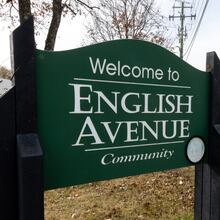CardioMEMS
The company has developed a wireless sensing and communications device for the human body. The device is inserted by catheter into a patient’s pulmonary artery and measures the heart’s blood pressure. It then transmits the data to a secured database monitored by medical staff for early detection of potentially serious conditions.
Founded: 2001
Location: Atlanta
Employees: About 50
Financial info: More than $100 million in private funding.
There’s a device in Walter Pieschel’s chest about the size of a paper clip that has probably saved his life many times over by wirelessly alerting doctors when he was on the verge of a potentially deadly condition.
The implant was dreamed up by Atlanta-based CardioMEMS, and Pieschel, a 75-year-old who has been part of a clinical trial for four years, said he hopes others can soon benefit from the invention.
But the Georgia Tech spinoff’s scientific integrity is now being questioned after federal regulators raised concerns about key clinical trials required to show the device is safe and effective. A flawed study could derail the firm’s effort to bring to market what some have called a key development in the fight against heart failure.
Dan Bauer, the company’s spokesman, said in a statement that the firm has had “positive constructive conversations” with the FDA and that he’s optimistic CardioMEMS will be able to bring the device to market.
CardioMEMS has for years been hailed by state officials as a shining example of the Atlanta startup community’s potential. It has attracted more than $100 million in private investment along with support from a state-backed nonprofit and about $700,000 from a publicly funded loan. Those funds fueled the company’s growth from a small office near Georgia Tech to a 50-person laboratory that sold a $60 million stake to a biotech powerhouse.
The Food and Drug Administration’s concerns, though, could throw the device’s future into question. Regulators took the rare step of warning CardioMEMS in a letter released last month that its conduct during the clinical trial “raises significant questions” about the reliability of its findings.
The letter, which cited several serious violations of federal regulations during the trial, came after an FDA panel voted 6-4 late last year against recommending that the invention be used to treat cardiac emergencies. The panel was concerned about potentially tainted clinical research.
Bauer said any flaws in the study were not intentional. The company has submitted a response to the FDA along with additional scientific data.
“The FDA appreciates that the company is addressing a very challenging, major public health problem,” he said. “CardioMEMS’ future is bright and believes that its breakthrough heart failure technology will help many patients suffering from heart failure.”
The device, which is inserted by catheter into a patient’s pulmonary artery, measures the heart’s blood pressure and transmits the data to a secure database monitored by medical staff.
In its letter, dated in June, the FDA says the company made recommendations to clinical investigators that “compromised the validity of the study,” and that staffers didn’t maintain accurate records and failed to submit a proper investigational plan.
The letter, which was heavily redacted when it was made public, also indicates investigators were instructed to provide additional individualized medical management only to some participants.
“Your firm’s conduct may have biased the study results, which raises significant questions about the reliability of the effectiveness data in the study,” the letter states.
“Additionally,” it states, “the omissions, inaccurate submissions, and discrepant records … also raise questions about the integrity and reliability of data and information provided by your firm to FDA.”
The FDA would not comment on the ongoing review. The agency sends hundreds of warning letters each year, but only a handful deal with concerns about the validity of clinical trials for medical devices, said Theodore Ruger, a University of Pennsylvania Law School professor who specializes in FDA law.
“It’s an unusually strong statement of dissatisfaction from the agency with what it’s found in the conduct of the clinical trial,” Ruger said. “It sends a strong signal that it’s going to be an uphill battle for this company to push the product with the regulators.”
CardioMEMS would not release its response to the FDA’s concerns but said it was “actively working” to address them.
The firm was founded in 2001 by Dr. Jay Yadav, a cardiologist, and Mark Allen, a Georgia Tech nanotechnology professor.
Yadav came to Atlanta and joined the Piedmont Health Institute after leading the innovations department at the Cleveland Clinic, where he had a track record of developing private medical devices and technology companies. In 1998, he sold a company that designed a stroke-preventing device called Angioguard to a division of Johnson & Johnson for $40 million.
In Atlanta, he helped develop CardioMEMS with Allen, an expert in microscopic electrical systems that can be implanted into the human body.
Investment firms infused the company with tens of millions of dollars to fund its research and clinical trial work. In late 2010, St. Jude Medical, the Minnesota-based heart device specialist, bought a 19 percent stake of the company for $60 million with an option to buy the rest. A St. Jude Medical spokeswoman did not return calls seeking comment.
The leaders of Georgia’s small but growing biotech industry are closely watching the future of CardioMEMS, mindful that state leaders have made building the biotech industry a priority.
The firm received about $700,000 from a $2 million credit line from the state Life Science Facilities Fund to build its lab near Georgia Tech about five years ago, and state officials say it is on track to be repaid. The Georgia Research Alliance, a nonprofit that receives public and private funding to boost university-based development, also gave the firm a $100,000 grant in 2004, said Mike Cassidy, the alliance's head.
“It’s a very strong team. They have very good leadership,” Cassidy said. “We still have high hopes.”
Pieschel, who lives in Richwood, Ky., counts himself grateful that CardioMEMS has not given up. Its device alerted medical staff at least 10 times that he was on the verge of pulmonary edema, a potentially deadly buildup of fluid in the lungs. Each time, he said, his doctors detected the problem in time to treat it.
“I wouldn’t be around today if I didn’t have the device,” said Pieschel, who testified in support of it at the FDA hearing last year.
“I couldn’t say enough about what it’s done for me. I have said many, many times in these four years how fortunate I was to get this help. I think all the time, ‘How in the world have I been so lucky?’ ”
About the Author





